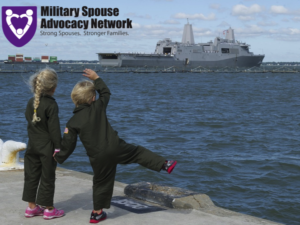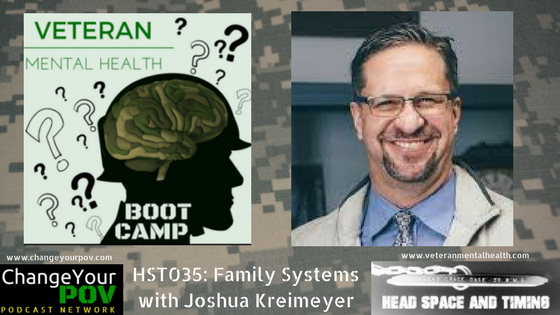
This was originally posted on the Military Spouse Advocacy Network blog, and I’m honored to be working with them! You can read the original post, and find more great information for those who support service members and veterans most, by going here.
“Daddy’s going to be leaving for a while. But don’t worry, here’s a new puppy!”
Probably not the best way to break the news to your kids about an upcoming deployment, but don’t think my wife and I haven’t thought about trying it. Looking back on it, we might have inadvertently done so, as we now share our space with three dogs and three cats, but the accumulation of pets was independent of deployments. But how often do we want to soften the blow of an upcoming departure with an amazing gift that takes the sting away?
One of the most challenging things that my wife and I found about our deployments was telling our kids that I was going to be leaving. Especially, at the height of the operational tempo several years ago, it was as if it was a never-ending revolving door. My first deployment to Iraq was in 2006. My daughter was in the first grade, and my son was in kindergarten. My last deployment, the fourth during this time, happened in 2013, and they were in middle school. Not only that, they were old hands at the deployment and dad leaving game by this time, but it didn’t make it any easier.
The problem is, the need of explanation changes as the kids age. Maybe when they were younger, it might have been easier, because the “why” questions were answered by, “he’s leaving to make sure that the bad guys stay over there and don’t come over here” or something to that effect. While that argument may fly with a five year old who hasn’t experienced this before, trying to use that explanation to a twelve-year old, or a fifteen-year-old, isn’t going to fly. Again, they’ve been through this, and their level of understanding is greater. Not only that, in our children’s mind, what is much more immediate is much more important.
There are also times when things become absolute. My daughter’s birthday is in January, and my son’s birthday is in August, and it always seemed to be that the Army kept me at home around the holidays, but deployed me over the summer. Between 2006 and 2013, I missed my son’s birthday five times, but only missed my daughter’s birthday twice. Five of those missed birthdays were four years in a row. Therefore, on subsequent “dad’s deploying again” conversations, my son’s first reaction was, “Dad’s going to miss my birthday again.” While that wasn’t always true, it was true more often than not, and can easily translate into an absolute, “dad’s never here for my birthday.” These are the kinds of things that we, as parents, need to be aware of and how it can impact our children.
So, how do we have those conversations? As with many different things in our relationships, getting on the same page is certainly the best answer. If my wife were to respond to my son’s statement with, “yep, he sure is, nothing we can do about it,” that doesn’t really soften the blow very much. Instead, making sure we were both communicating about how and when we were going to tell them was very important.
You also have to tailor your message to your situation and the age of your children. Our two are eighteen months apart, and experienced the deployments simultaneously. If you have a family with a twelve year old, eight year old, and five year old, it’s likely that the twelve year old has gone through this before but the five year old hasn’t. You can’t explain the situation to the twelve year old as if you were talking to the five year old, and vice versa.
I recommend that you have the conversation in stages.
Breaking the News
Decide on when and where to share the news.Start off with of the kids together, and break the news. Then maybe mom takes the little one to play for a bit, and dad talks to the older two a bit more to answer any questions or concerns and console them if needed
Answer Questions or Ask Questions
Maybe your eight year old has gone through the deployment cycle once: ask them what it was like for them? What’s different now than the last time? And the same for the older child…listen to them, allow them to talk about previous times. Have a deeper and more meaningful conversation with the oldest…what was it like for you when you first heard dad was leaving? Do you think the youngest may be feeling that way now? What questions do you have that I may be able to answer?
Family Time
Make some time to connect with the oldest child hang out for a while, go to the store or take the family to get ice cream (shades of the puppy scenario, but what the heck). As you can see, this is a more deliberate and in-depth approach than the old, “dad’s taking off again” scenario. It takes planning, patience, and yes, courage to look our kids in the eye and have a challenging but important conversation.
Having a plan and conversation with your children can make other challenging easier. If you can communicate about this, you can communicate about almost anything.

The Head Space and Timing Blog is supported by the Colorado Veterans Health and Wellness Agency, a 501(c)3 Nonprofit in Colorado Springs, Colorado. The goal of the CVHWA is to provide military culturally competent mental health counseling to veterans and their spouses, regardless of characterization of discharge, time of service, or era of service. Our vision is to assist veterans to identify and remove barriers to their mental, physical, emotional, and behavioral wellness. For questions or inquiries, contact us!


